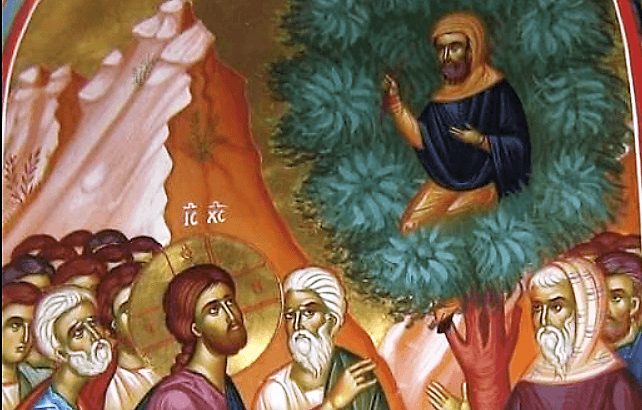POPE FRANCIS ON THE 31ST SUNDAY IN ORDINARY TIME YEAR C
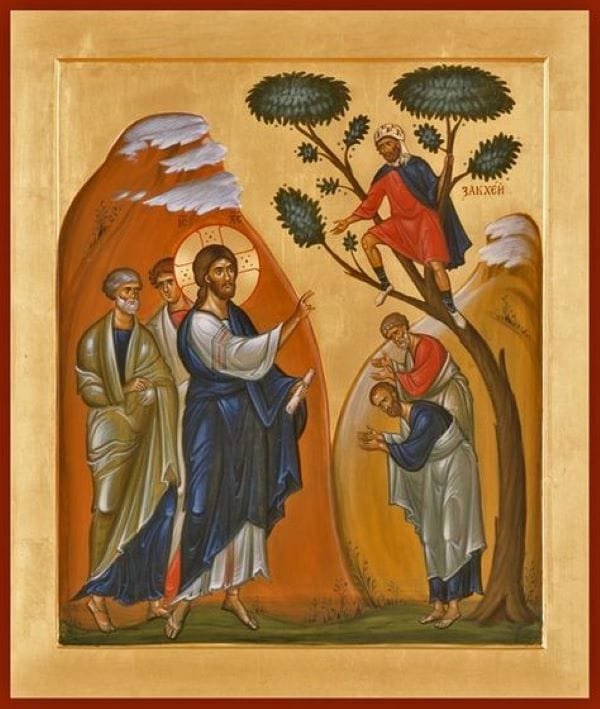
ANGELUS
Saint Peter’s Square
31st Sunday in Ordinary Time Year C, 30 October 2022
____________________________
Dear brothers and sisters, buongiorno!
Today, in the Liturgy, the Gospel narrates the encounter between Jesus and Zacchaeus, chief of the publicans of the city of Jericho (Lk 19: 1-10). At the centre of this account there is the verb to seek. Pay attention: to seek. Zacchaeus “was seeking to see who Jesus was” (v. 3), and Jesus, after meeting him, states: “the Son of Man has come to seek and to save what was lost” (v. 10). Let us focus a little on these two gazes that seek: the gaze of Zacchaeus who is seeking Jesus, and the gaze of Jesus who is looking for Zacchaeus.
The gaze of Zacchaeus. He is a publican, that is, one of those Jews who collected taxes on behalf of the Roman rulers, a traitor of the homeland, and took advantage of their position. Therefore, Zacchaeus was rich, hated – hated! – by all and branded a sinner. The text says “he was short in stature” (v. 3), and this perhaps also alludes to his inner baseness, to his mediocre, dishonest life, with his gaze always turned downwards. But the important thing is that he was little. And yet, Zacchaeus wants to see Jesus. Something drove him to see him. “He ran ahead”, says the Gospel, “and climbed a sycamore tree in order to see Jesus, who was about to pass that way” (v. 4). He climbed a sycamore: Zacchaeus, the man who dominated everyone, made himself ridiculous and took the path of ridicule – to see Jesus. Let us think a little of what would happen if, for instance, a minister of the economy climbed a tree to look at something: he would risk mockery. And Zacchaeus risked mockery to see Jesus, he made himself look ridiculous. Zacchaeus, despite his lowliness, feels the need to seek another way of looking, that of Christ. He does not yet know him, but he awaits someone who will free him from his condition – morally low – to bring him out of the mire in which he finds himself. This is fundamental: Zacchaeus teaches us that, in life, all is never lost. Please, all is never lost, never. We can always find space for the desire to begin again, to start over, to convert. Re-convert, re-begin, re-start. And this is what Zacchaeus does.
In this regard, the second aspect is decisive: the gaze of Jesus. He was sent by the Father to seek those who are lost; and when he arrives in Jericho, he passes right by the tree where Zacchaeus is. The Gospel narrates that “Jesus looked up and said to him, “‘Zacchaeus, come down quickly, for today I must stay at your house’” (v. 5). It is a truly beautiful image, because if Jesus has to look up, it means that he is looking at Zacchaeus from below. This is the history of salvation: God has never looked down on us – no; to humiliate us – no; – to judge us – no; on the contrary, he lowered himself to the point of washing our feet, looking at us from below and restoring our dignity to us. In this way, the meeting of eyes between Zacchaeus and Jesus seems to encapsulate the whole of salvation history: humanity, with its miseries, seeks redemption, but firstly, God, with mercy, seeks the creature to save it.
Brothers, sisters, let us remember this: the gaze of God never stops at our past, full of errors, but looks with infinite confidence at what we can become. And if at times we feel we are people who are “short in stature”, not up to the challenges of life and far less of the Gospel, mired in problems and sins, Jesus always looks at us with love, he looks at us: as with Zacchaeus, he comes towards us, he calls us by name and, if we welcome him, he comes to our home. Then we might ask ourselves: how do we look at ourselves? Do we feel inadequate, and resign ourselves, or precisely there, when we feel down, do we seek the encounter with Jesus? And then: what gaze do we have towards those who have erred, and who struggle to get up again from the dust of their mistakes? Is it a gaze from above, that judges, disdains, excludes? Remember that it is legitimate to look down on someone only to help them get up again: nothing more. Only then is it legitimate to look down from above. But we Christians must have the gaze of Christ, who embraces from below, who seeks those who are lost, with compassion. This is, and must be, the gaze of the Church, always, the gaze of Christ, not the condemning gaze.
Let us pray to Mary, whose humility the Lord looked upon, and ask her for the gift of a new outlook on ourselves and on others.
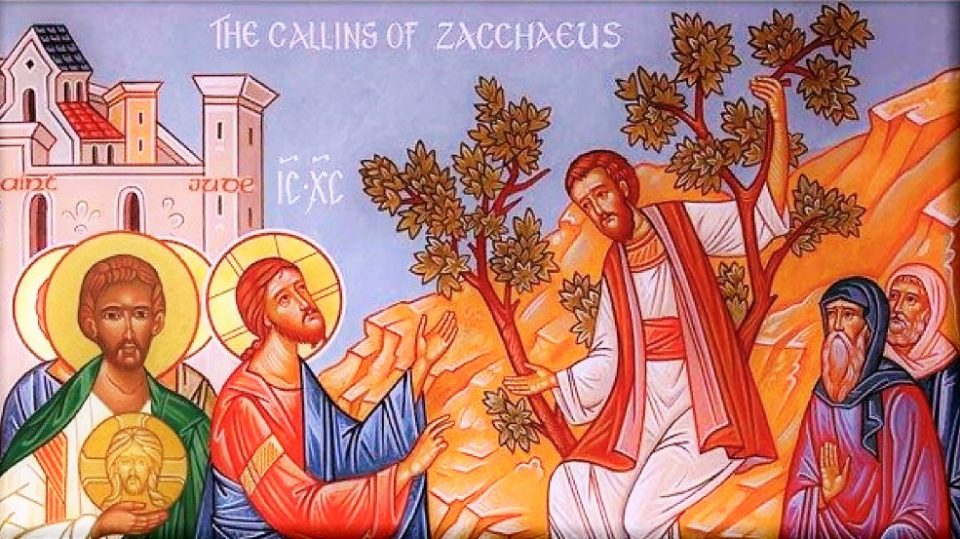
31st Sunday in Ordinary Time Year C,
May the Virgin May obtain for us the grace always to feel Jesus’ merciful gaze upon us, to go with mercy towards those who have erred, so that they too may welcome Jesus, Who “came to seek and to save the lost” (v. 10).
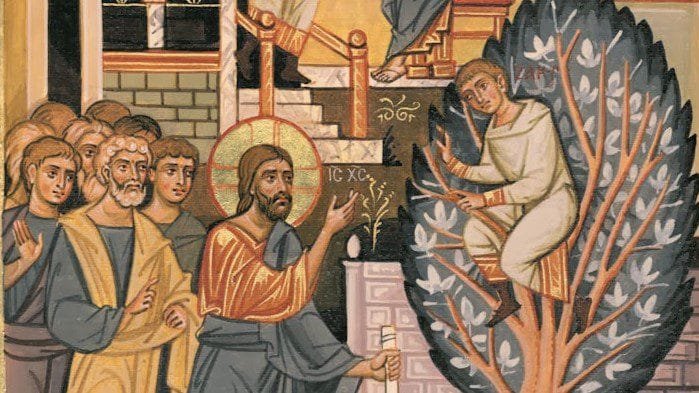
ANGELUS
St Peter’s Square
31ST SUNDAY IN ORDINARY TIME YEAR C, 30 October 2016
Dear Brothers and Sisters, Good morning!
Today’s Gospel presents us with an event that happened in Jericho, when Jesus entered the city and was welcomed by the crowd (cf. Lk 19:1-10). In Jericho lived Zacchaeus, the chief of the “publicans”, that is, of the tax collectors. Zacchaeus was a wealthy agent of the hated Roman occupation, an exploiter of his people. Out of curiosity, he too wanted to see Jesus, but his status as a public sinner did not allow him to approach the Master; moreover, he was small of stature, and for this reason he climbed a sycamore tree, along the road where Jesus was to pass.
When he neared that tree, Jesus looked up and said to him: “Zacchaeus, make haste and come down; for I must stay at your house today” (v. 5). We can imagine Zacchaeus’ astonishment! Why does Jesus say “I must stay at your house”? What duty does this refer to? We know that his highest duty is to implement the Father’s plan for all of mankind, which is fulfilled in Jerusalem with his death sentence, the crucifixion and, on the third day, the Resurrection. It is the Father’s merciful plan of salvation. And in this plan there is also the salvation of Zacchaeus, a dishonest man who is despised by all, and therefore in need of conversion. In fact, the Gospel says that when Jesus called him, “they all murmured, ‘He has gone into the house of a sinner!’” (cf. v. 7). The people saw Zacchaeus as a scoundrel who became rich at his neighbours’ expense. Had Jesus said: “Come down, you, exploiter, you traitor of the people! Come to speak with me and settle the score!”, surely the people would have applauded. Instead, they began to whisper: “Jesus is going to his house, the house of the sinner, the exploiter”.
Guided by mercy, Jesus looks for him precisely. And when he enters Zacchaeus’ house he says: “Today, salvation has come to this house, since he also is a son of Abraham. For the Son of Man came to seek and to save the lost” (vv. 9-10). Jesus’ gaze goes beyond sins and prejudices. And this is important! We must learn this. Jesus’ gaze goes beyond sins and prejudices; he sees the person through the eyes of God, who does not stop at past faults, but sees the future good; Jesus is not resigned to closing, but always opens, always opens new spaces of life; he does not stop at appearances, but looks at the heart. And here he sees this man’s wounded heart: wounded by the sin of greed, by the many terrible things that Zacchaeus had done. He sees that wounded heart and goes there.
Sometimes we try to correct or convert a sinner by scolding him, by pointing out his mistakes and wrongful behaviour. Jesus’ attitude toward Zacchaeus shows us another way: that of showing those who err their value, the value that God continues to see in spite of everything, despite all their mistakes. This may bring about a positive surprise, which softens the heart and spurs the person to bring out the good that he has within himself. It gives people the confidence which makes them grow and change. This is how God acts with all of us: he is not blocked by our sin, but overcomes it with love and makes us feel nostalgia for the good. We have all felt this nostalgia for the good after a mistake. And this is what God Our Father does, this is what Jesus does. There is not one person who does not have some good quality. And God looks at this in order to draw that person away from evil.
May the Virgin Mary help us to see the good that there is in the people we encounter each day, so that everyone may be encouraged to bring out the image of God imprinted in their hearts. In this way we can rejoice in the surprises of the mercy of God! Our God, who is the God of surprises!
See as well:
ANGELUS
Saint Peter’s Square
31ST SUNDAY IN ORDINARY TIME YEAR C, 3 November 2013
Dear Brothers and Sisters, Good morning!
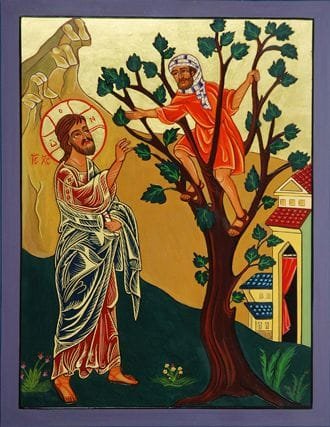
The page of Luke’s Gospel chosen for this Sunday shows us Jesus who, on his way to Jerusalem, enters the city of Jericho. This is the final stage of a journey that sums up the meaning of the whole of Jesus’ life, which was dedicated to searching and saving the lost sheep of the house of Israel. But the more the journey comes to a close, the more hostility envelops Jesus.
Yet one of the most joyful events recounted by St Luke happens in Jericho: the conversion of Zacchaeus. This man is a lost sheep, he is despised and “excommunicated” because he is a tax collector, indeed he is the head of the tax collectors of the city, a friend of the hated Roman occupants; he is a thief and an exploiter.
Being short in stature and prevented from approaching Jesus, most likely because of his bad reputation, Zacchaeus climbs a tree to be able to see the Teacher who is passing by. This exterior action, which is a bit ridiculous, expresses the interior act of a man seeking to bring himself above the crowd in order to be near Jesus. Zacchaeus himself does not realize the deep meaning of his action; he doesn’t understand why he does it, but he does. Nor does he dare to hope that the distance which separates him from the Lord may be overcome; he resigns himself to seeing him only as he passes by. But when Jesus comes close to the tree he calls him by name: “Zacchaeus, make haste and come down; for I must stay at your house today” (Lk 19:5). The man of small stature, rejected by everyone and far from Jesus, is lost in anonymity; but Jesus calls him. And the name “Zacchaeus” in the language of the time has a beautiful meaning, full of allusion. “Zacchaeus” in fact, means “God remembers”.
So Jesus goes to Zacchaeus’ house, drawing criticism from all the people of Jericho (even in those days there was a lot of gossip!), who said: How can this be? With all the good people in the city, how can he go stay with a tax collector? Yes, because he was lost. Jesus said: “Today salvation has come to this house, since he is also a son of Abraham” (Lk 19:9). From that day forward in Zacchaeus’ house joy entered, peace entered, salvation entered and Jesus entered.
There is no profession or social condition, no sin or crime of any kind that can erase from the memory and the heart of God even one of his children. “God remembers”, always, he never forgets those who he created. He is the Father, who watchfully and lovingly waits to see the desire to return home be reborn in the hearts of his children. And when he sees this desire, even simply hinted at and so often almost unconsciously, immediately he is there, and by his forgiveness he lightens the path of conversion and return. Let us look at Zacchaeus today in the tree: his is a ridiculous act but it is an act of salvation. And I say to you: if your conscience is weighed down, if you are ashamed of many things that you have done, stop for a moment, do not be afraid. Think about the fact that someone is waiting for you because he has never ceased to remember you; and this someone is your Father, it is God who is waiting for you! Climb up, as Zacchaeus did, climb the tree of desire for forgiveness. I assure you that you will not be disappointed. Jesus is merciful and never grows tired of forgiving! Remember that this is the way Jesus is.
Brothers and sisters, let Jesus also call us by name! In the depths of our hearts, let us listen to his voice which says: “Today I must stop at your house”; that is, in your heart, in your life. And let us welcome him with joy. He can change us, he can transform our stoney hearts into hearts of flesh, he can free us from selfishness and make our lives a gift of love. Jesus can do this; let Jesus turn his gaze to you!
Stay updated: subscribe by email for free TO OUR NEW WEBSITE www.catholicsstrivingforholiness.org (PUT YOUR EMAIL IN THE SUBSCRIBE WIDGET).
We are also in www.fb.com/Catholicsstrivingforholiness. Kindly help more people in their Christian life by liking our page and inviting your family, friends and relatives to do so as well. Thanks in advance and God bless you and your loved ones! Fr. Rolly Arjonillo
